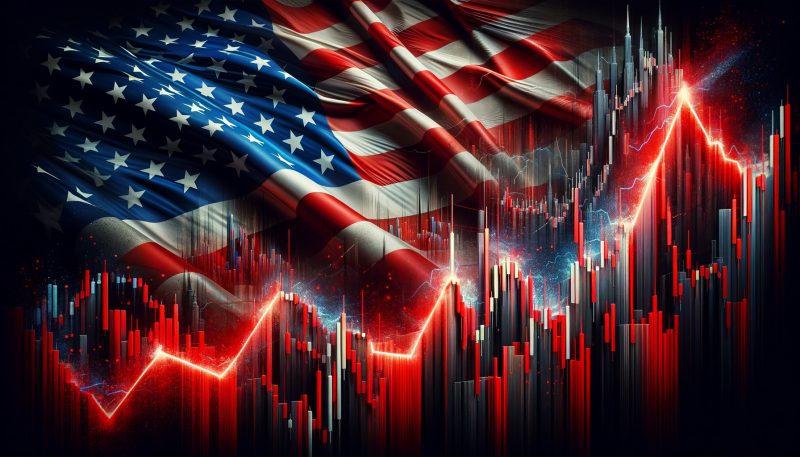With the BRICS bloc seeking to drive global finance away from the West, the US is at its highest risk for a recession after its recent stock market crash. Indeed, the $2 trillion crash was driven by global concern over the country’s financial state. Moreover, it could have a massive impact on the dollar.
The nation has long fended off potential recessions in recent years. Yet, this time may be different. With Japan’s stock market suffering its largest single-day loss ever, the world is concerned that 2024 could finally see the United States suffer from the hard-landing experts have feared.

Also Read: BRICS: US Markets Could Face Substantial Losses, Analyst Declares
US Recession Risk at New High Amid Market Crash, Geopolitical Concern
The US economy hit a new roadblock Monday. With interest rates still at a 23-year high, employment data drove panic in the stock market. That left the Dow down more than 1,000 points in premarket trading. Moreover, it encouraged concern of an impending crisis in the country.
As BRICS has sought to drive global influence away from the West, the US appears at its highest risk for recession amid the stock market crash. Indeed, chief global economist for Piper Sandler, Nancy Lazar, recently discussed the danger that could ensue.
“It wasn’t just a one-month number,” Lazar said, referring to Friday’s jobs report. “This has been a rising trend. She notes that a recession is expected two and a half years after the Federal Reserve tightening campaign first began.


Also Read: US Markets Ready for a 20% Plunge, Investors Urged To Remain Prepared
“We’ve been expecting a recession to unfold,” Lazar remarked. She had previously predicted it to occur at the end of 2023. Yet, the potential is only increasing. “We’re now at the highest risk of the economy moving into a recession,” Lazar warned.
The statement arrived as Goldman Sachs updated its chances for a recession. Specifically, the firm increased the probability of the event from 15% to 25% within the next year. This could ultimately serve the BRICS alliance.
They have firmly embraced de-dollarization over the last several years. Although the US has shown economic fragility, it hasn’t threatened its prominent standing in global economics. That could change. Even more important, it could severely impact the US dollar’s reserve status. Something that the BRICS group has been targeting.





